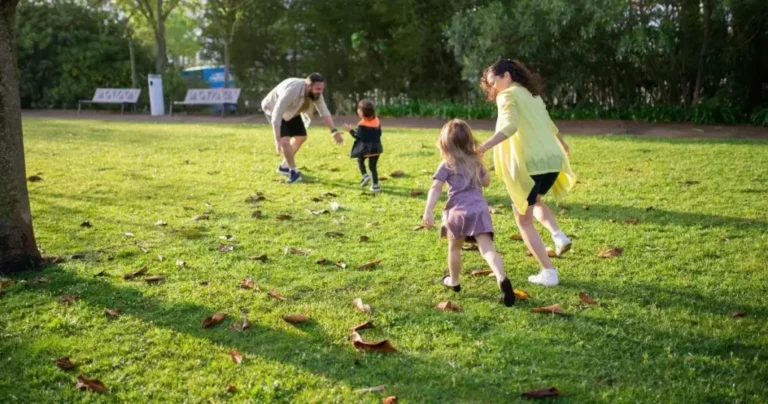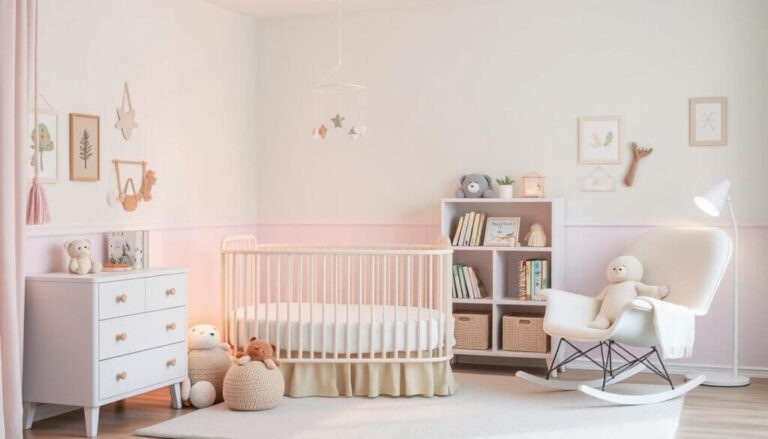How Can I Be a Better Parent? Practical Tips for Everyday Parenting

Understanding the Foundations of Good Parenting
Parenting is a complex journey that needs understanding, patience, and learning. The first step to better parenting is knowing the basic principles for healthy child growth. Positive parenting creates a supportive space for your child’s emotional and psychological growth. It’s more than just discipline. It’s about building strong, meaningful connections.
Defining Positive Parenting Approaches
Effective parenting styles have some key traits:
- Emotional support and validation
- Clear and consistent communication
- Respect for the child’s individual needs
- Encouraging independence
The Impact of Different Parenting Styles
Research shows that parenting styles greatly affect a child’s development. Different methods can lead to different outcomes in emotional intelligence, behavior, and self-esteem.
| Parenting Style | Key Characteristics | Potential Impact |
|---|---|---|
| Authoritative | Warm, responsive, with clear boundaries | Confident, self-regulated children |
| Permissive | Lenient, few boundaries | Potential behavioral challenges |
| Authoritarian | Strict, punitive approach | Potential low self-esteem |
Creating a Nurturing Environment
A nurturing home offers emotional safety and consistent support. Key elements include:
- Active listening
- Showing unconditional love
- Providing age-appropriate challenges
- Celebrating individual strengths
By grasping these foundations, you can create more effective parenting strategies. These strategies support your child’s overall growth and well-being.
Building Strong Emotional Connections With Your Child
Creating deep emotional connections is key to being a good parent. Your child needs to feel loved, understood, and valued without any conditions. These bonds are crucial for their mental growth and future relationships.
To show unconditional love, try these important strategies:
- Practice active listening without judgment
- Validate your child’s feelings
- Spend quality one-on-one time
- Express affection consistently
- Communicate openly and honestly
Emotional connection is more than just talking. It’s about making a safe space where your child feels free to share their thoughts and feelings. This means being fully present, attentive, and ready to meet their emotional needs.
| Connection Strategy | Emotional Impact |
|---|---|
| Active Listening | Increases trust and self-worth |
| Physical Affection | Builds sense of security |
| Empathetic Response | Develops emotional intelligence |
Building emotional connections is a continuous effort. Every moment is a chance to grow closer and show unconditional love. Your steady support will help your child become emotionally strong and confident.
Setting Consistent Boundaries and Discipline Strategies
Parenting is all about finding the right mix of love and structure. Good discipline helps kids know what’s expected and control themselves. By setting limits and sticking to your discipline, you make a safe space for your child to grow emotionally.
Good parenting tips for discipline include knowing what works for each age and keeping communication open.
Establishing Age-Appropriate Rules
Every age needs its own way of being disciplined. Little kids need simple rules, while teens need more detailed guidance.
- Toddlers: Use short, direct instructions
- Preschoolers: Implement basic consequences
- School-age children: Introduce more complex rules
- Teenagers: Collaborate on setting expectations
Implementing Effective Consequences
Consequences should be meaningful and proportional to the child’s actions. It’s about teaching, not just punishing.
| Age Group | Recommended Consequence Type |
|---|---|
| 2-4 years | Brief time-outs (1-2 minutes) |
| 5-8 years | Loss of privileges |
| 9-12 years | Structured problem-solving |
| 13-17 years | Negotiated restrictions |
Maintaining Consistency in Discipline
Being consistent is crucial in discipline. When rules and consequences are the same, kids feel safe and know what’s expected. Both parents should agree on discipline to make it clear.
- Communicate rules clearly
- Follow through with consequences
- Stay calm and rational
- Provide explanations
Remember, discipline is about helping, not controlling. Always come from a place of love and understanding.
Boosting Your Child’s Self-Esteem Through Positive Reinforcement
Helping your child feel good about themselves is key in parenting. When you notice and praise their good actions, you create special moments. These moments can help build their confidence for a long time.
Here are some ways to help your child feel better about themselves:
- Give specific praise that shows you value their hard work
- See and celebrate their achievements, not just in school or sports
- Really listen when they talk about their thoughts and feelings
- Don’t criticize too harshly, as it can hurt their self-confidence
Positive feedback is most effective when it’s real and specific. Don’t just say “Good job.” Instead, say something like “I really like how you organized your school supplies.” This shows you notice and appreciate their efforts.
Creating a supportive space helps kids grow strong. By always noticing and praising their good actions, you encourage them to keep being positive. This way, they naturally feel more confident and valued.
Building self-esteem takes time and real interactions. Your words and actions are very important. They help your child see themselves in a positive light and believe in their abilities.
Creating Quality Time and Meaningful Interactions
Parenting is tough but rewarding. It’s all about making real connections with your kids. Even when life gets busy, it’s important to make time for them.
Today’s families find it hard to spend quality time together. Work, screens, and daily tasks can take over. But recognizing this problem is the first step to stronger family ties.
Planning One-on-One Activities
Spending one-on-one time makes kids feel special. Here are some fun activities:
- Weekly game nights
- Cooking together
- Nature walks
- Reading shared books
- Creative art projects
Making Daily Routines Special
Make everyday moments special by adding creativity. Small actions can leave big impressions.
| Daily Routine | Connection Strategy |
|---|---|
| Breakfast | Tell jokes or share interesting stories |
| Bedtime | Read together or have meaningful conversations |
| Commute | Play educational games or listen to podcasts |
Balancing Work and Family Time
Parents need to manage their time well. Prioritize quality over quantity when with your kids. Set limits, plan ahead, and stay open to change.
- Establish technology-free zones
- Plan family calendar together
- Communicate openly about schedules
- Practice active listening
It’s not about being perfect. Just being there and engaging with your kids is what counts. It’s all about building strong, lasting bonds.
Developing Effective Communication Skills
Learning to be a good parent begins with mastering communication. When you focus on communication, you build trust and understanding with your kids.
Good communication is more than just talking. It’s about listening well, showing empathy, and making a safe space for your child to share. Kids who feel heard grow emotionally and have stronger bonds with their parents.
- Practice active listening by giving your full attention
- Ask open-ended questions that encourage detailed responses
- Validate your child’s feelings without judgment
- Use age-appropriate language and communication styles
Each age group needs a different way to communicate. Knowing these strategies helps you connect better with your child.
| Age Group | Communication Strategy | Key Focus |
|---|---|---|
| Toddlers (1-3 years) | Simple, clear language | Emotional validation |
| School-age (4-10 years) | Encourage storytelling | Build confidence in expressing thoughts |
| Teenagers (11-18 years) | Active listening, respect privacy | Create trust and open dialogue |
Remember, making communication a priority doesn’t mean you have to be perfect. It’s about showing your child you care about their thoughts, feelings, and experiences.
Leading by Example: Being a Role Model for Your Children
Parenting is more than just providing for your kids’ basic needs. It’s about being a role model and showing them values, emotional smarts, and how to bounce back from tough times. Every moment is a chance to teach them important lessons.
Children watch and learn more from what you do than what you say. Your actions shape their way of dealing with life’s ups and downs. To be a better parent, reflect on your actions and make choices that teach your kids valuable lessons.
Demonstrating Values Through Actions
Your daily actions show what you believe in. Here are some tips to help you be a good role model:
- Always be honest
- Show respect to everyone
- Be kind and understanding
- Stay true to yourself, even when it’s hard
Managing Your Own Emotions
It’s important to control your emotions to be a good role model. Kids learn by watching how you handle stress, anger, and sadness.
| Emotional Challenge | Positive Modeling Strategy |
|---|---|
| Anger | Take deep breaths, speak calmly |
| Stress | Practice self-care, communicate feelings |
| Disappointment | Demonstrate resilience, problem-solving |
Showing Resilience in Challenges
Life throws unexpected hurdles. How you handle these challenges teaches your kids about never giving up and being flexible. Talk about how you solve problems and what you learn from failures.
Adapting Your Parenting Style to Your Child’s Needs
Parenting is a journey that keeps changing. It’s important to be flexible and adjust your parenting style to meet your child’s needs. Every child is unique, and what works for one might not work for another.
Adaptable parenting styles are key to creating a supportive environment for your child. Your approach should change as your child grows and develops their own personality.
- Understand your child’s individual temperament
- Observe how they respond to different communication strategies
- Be open to modifying your approach based on their needs
- Recognize when your current parenting style isn’t effective
Different children need different parenting styles. Some might need more structure, while others prefer more freedom. Flexibility is key to successful parenting.
| Child’s Age Group | Recommended Parenting Approach |
|---|---|
| Toddlers (1-3 years) | Consistent boundaries with gentle redirection |
| Preschoolers (3-5 years) | Encouraging independence with supportive guidance |
| School-age (6-12 years) | Collaborative problem-solving and increasing autonomy |
| Teenagers (13-18 years) | Negotiation, respect, and gradual responsibility |
Being flexible in parenting doesn’t mean being all over the place. It means being responsive to your child’s needs while keeping love and boundaries strong.
Supporting Your Child’s Growth and Development
Parenting is a journey of nurturing and guiding your children. It’s more than just taking care of them. It’s about helping them grow and reach their full potential. Good parenting tips can help you create a space where they can learn, be independent, and discover themselves.

Teaching your children to be self-reliant is key. Start by giving them tasks they can handle on their own. This builds their confidence:
- Let young children dress themselves
- Assign simple household chores
- Encourage problem-solving skills
- Provide opportunities for decision-making
Nurturing Individual Talents
Every child has their own strengths and interests. Your approach to supporting them should be personal and focused. Here are some strategies:
| Age Group | Talent Development Approach |
|---|---|
| Preschool | Expose to varied activities |
| Elementary | Encourage exploration of interests |
| Middle School | Support specialized training |
Providing Educational Support
Educational growth needs active parental involvement. Make a learning-friendly space by:
- Establishing consistent study routines
- Communicating with teachers regularly
- Using positive reinforcement
- Identifying and addressing learning challenges
Supporting your child’s growth is about finding balance, being patient, and understanding their needs. Your effort can greatly impact their journey.
Practicing Self-Care as a Parent
Parenting is both tough and rewarding. This makes self-care key for your mental and emotional health. Taking care of yourself helps you have the energy and strength to support your kids well.
Self-care isn’t selfish. It’s about being the best parent you can be. When you’re healthy, you can offer more support and connection to your kids.
- Schedule personal time – Even 15-30 minutes daily can make a significant difference
- Practice stress-reduction techniques like meditation or deep breathing
- Maintain physical health through regular exercise
- Connect with other parents for support and shared experiences
Your self-care routine might include simple activities like reading, pursuing a hobby, or enjoying quiet moments alone. These small investments in yourself will help you manage the complex emotional landscape of parenting.
Remember, good parenting isn’t about being perfect. It’s about being present, engaged, and taking care of your own needs. This way, you can truly show up for your children.
Conclusion
Becoming a good parent is not about being perfect. It’s about showing love, understanding, and commitment to your child’s growth. The journey of learning and connecting with your children is ongoing.
Positive parenting needs patience, self-reflection, and a desire to grow with your kids. Every moment is a chance to build trust and create a supportive space. This space helps your child grow emotionally and intellectually.
The strategies and tools in this guide aim to help you as a parent. They help you set boundaries and build strong connections. Your efforts make a big difference in your child’s life.
Your parenting journey is special and unique. While every family is different, love, respect, and understanding are key. Keep learning, be kind to yourself, and know that your dedication is the best gift for your children.
FAQ
What is positive parenting?
Positive parenting is about building a strong bond with your kids. It’s about talking, understanding, and guiding them. You set clear rules, use good discipline, and show love without condition. It helps kids learn important life skills.
How can I improve my communication with my children?
To better talk to your kids, listen well and ask open questions. Make a safe space for them to share. Avoid judging and show you care. Give your full attention and validate their feelings.
What are the most effective ways to discipline children?
Good discipline sets clear rules and uses consequences that fit their age. Focus on teaching, not just punishing. Use positive words, explain rules, and be consistent. Time-outs and natural consequences work better than harsh punishment.
How can I boost my child’s self-esteem?
To boost self-esteem, praise them for being good and show love without condition. Focus on their efforts, not just results. Give them chances to succeed and show confidence in them. Avoid criticism and use positive words.
How do I balance work and quality time with my children?
Spend quality time by being fully there. Plan special activities and make daily routines special. Use tech to stay close when apart. Create lasting memories with your kids.
What does it mean to be a good role model for my children?
Being a good role model means showing the values you want your kids to have. Manage your feelings, be kind, and stay true to yourself. Kids learn more from what you do than what you say.
How can I support my child’s individual growth and development?
Support their growth by encouraging independence and nurturing their talents. Listen to their interests and offer chances to explore. Create a supportive space for them to learn and grow at their own pace.
Why is self-care important for parents?
Self-care is key because parenting is tough on your mind and body. Taking care of yourself makes you a better parent. Make time to relax, seek support, and keep your interests alive. Remember, caring for yourself helps your kids too.
How do I adapt my parenting style as my child grows?
Be open to changing your parenting as your child grows. What works for a toddler won’t do for a teen. Stay in touch with their needs, talk openly, and adjust your ways to support their growth.
What if I make mistakes in my parenting?
Remember, no one is perfect. Own up to mistakes, apologize when needed, and learn from them. Be kind to yourself, seek help when you need it, and keep working to be a better parent. What matters most is your love and effort to improve.







2 Comments
Comments are closed.